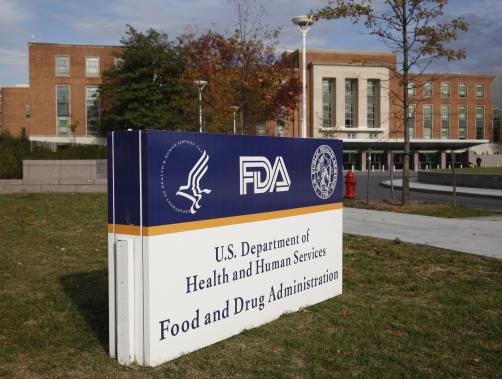
AZ and Takeda diabetes drugs get FDA safety update
pharmafile | April 15, 2015 | News story | Manufacturing and Production, Sales and Marketing | AstraZeneca, FDA, Nesina, Onglyza, Takeda, alogliptin, cardiovascular, diabetes, saxagliptin
An FDA advisory committee has said that the labels of two type 2 diabetes drugs should be changed to warn of the risk of heart problems.
The panel discussed trial results suggesting that both AstraZeneca’s Onglyza (saxagliptin) and Takeda’s Nesina (alogliptin) – from the DPP-4 inhibitor class of diabetes treatments – could increase risk of hospitalisation due to heart failure.
Both drugs were found to have an increased risk of lower than 30% – the level defined as unacceptable by the trials – and were voted to have an acceptable safety profile. However, the panel recommended that the treatments’ labels should now include data from these trials to inform patients of the potential risk.
“Patients with diabetes are at an increased risk of cardiac related comorbidities such as heart disease and stroke, as well as hospitalised heart failure and cardiac death,” says Professor William White, on behalf of the steering committee and investigators for Nesina’s trial.
“Today’s advisory committee recommendation provides important information about Nesina that may be useful for prescribing physicians as they consider appropriate treatment options for patients with type 2 diabetes.”
The safety of diabetes drugs has been an area of increasing concern for the FDA, and in 2008 it requested pharma firms to conduct trials to assess the risk of cardiovascular problems in treatments such as these.
Results from Onglyza‘s SAVOR trial were analysed earlier this week, and suggested a 27% increase in hospitalisation due to heart failure in patients taking the drug. The committee voted 13 to one, with one abstention, that this was an acceptable risk.
There were also concerns that that the medicine may ‘significantly’ increase all-cause mortality, although analysis of the results from the FDA found no clear reason for the higher number of deaths compared to patients taking placebos.
In a statement AstraZeneca says it will conduct further investigations to better understand the hospitalisations arising out of the SAVOR results.
The FDA is not obliged to follow the advisory committee’s recommendations, but is likely to do so.
The US regulator is awaiting results from a similar study into Merck’s Januvia (sitagliptin) – another DPP-4 inhibitor – which are expected in June. These could show whether cardiovascular risks are a problem with the entire drug class or just individual treatments.
George Underwood
Related Content

MRM Health’s ulcerative colitis treatment receives FDA Investigational New Drug clearance
Microbial Resource Management (MRM) Health has announced that its lead programme, MH002, has received Investigational …

Complement Therapeutics’ geographic atrophy treatment receives FDA Fast Track designation
Complement Therapeutics has announced that CTx001, its gene therapy treatment for geographic atrophy (GA) secondary …

Johnson & Johnson submits robotic surgical system for De Novo classification
Johnson & Johnson has announced the submission of its Ottava Robotic Surgical System for De …




